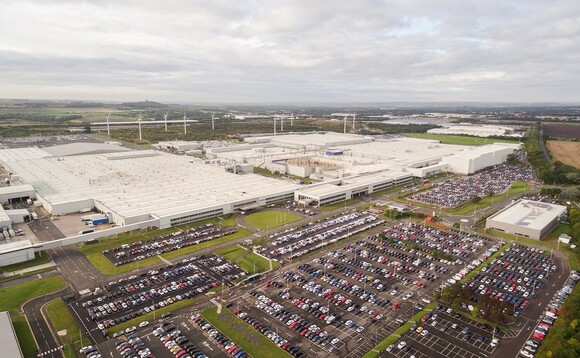Nissan's Sunderland car plant is the largest in the UK | Credit: Nissan
Pure electric, hybrid, and plug-in hybrid accounted for more than 40 per cent of all cars made in the UK in January, industry figures show
UK electric car production is continuing on its upward trend, according to fresh industry figures that reveal over 23,200 pure electric, plug-in hybrid, and hybrid vehicles rolled off domestic factory lines last month.
The performance means combined production of all electrified vehicles soared by almost 50 per cent in January compared to the same month last year, as they took a near-record share of the total number of cars manufactured in the UK, the Society of Motor Manufacturers and Traders (SMMT) revealed this morning.
More than four in 10 cars - 41 per cent - made in the UK last month were electrified, and the vast majority were exported to meet growing global demand for low carbon road transport, according to the automotive trade body.
The high volume of electrified vehicles again provided one of the only bright spots for the UK car manufacturing industry, with overall production of all vehicle types - including petrol and diesel cars - falling slightly by 0.3 per cent, the figures show.
The trade body blamed some of the stagnant production volumes on the ongoing impact of the war in Ukraine, following the suspension of shipments of cars to Russia last year which has hit the UK's export market.
But for the UK's electric vehicle sector at least, the latest production figures for January will provide welcome news given some of the recent headwinds faced by the industry.
Britishvolt, the start-up firm that had been planning to build the UK's first major EV battery factory in Northumberland, fell into administration last month, before a takeover deal was struck with Australian firm Recharge Industries in February.
Meanwhile, senior executives at Nissan have warned the UK's only large-scale dedicated EV manufacturing plant is struggling in the face of weak domestic supply chains, a lack of government support, and soaring production costs.
And last week US automotive giant Ford announced plans to slash 1,300 jobs in the UK as it shifts more of its EV production into Europe.
The concerns over the future of the domestic EV manufacturing sector come despite rapidly rising uptake of zero emission models in the UK, with the market enjoying yet another record year in 2022, taking a 16.6 per cent overall market share and surpassing diesel to become the second most popular powertrain after petrol.
Mike Hawes, SMMT's chief executive, argued the UK's automotive sector had huge potential for growth in the burgeoning global green economy, but called on the government to deliver clearer policy support for the sector and push back against protectionist trade policies worldwide.
"Automotive manufacturing can drive long-term growth for the low carbon economy but the sector needs competitive conditions to attract investment," he said. "Recent global developments, however, suggest increasing protectionism which, if not challenged or mitigated, could put the UK at a disadvantage.
"To deliver a wholesale industrial transformation we need a competitive framework and a pitch that promotes advanced vehicle manufacturing internationally. We now look to the forthcoming Budget for the necessary measures that will enable the automotive sector to deliver its undoubted potential."
The news comes a day after the government announced plans for a new British Industry Supercharger scheme, which aims to bring UK industrial energy costs into line with its economic competitors. The government said the increased support would provide a major boost to energy intensive industries and help attract investment in emerging green sectors, such as EV and battery manufacturing.











